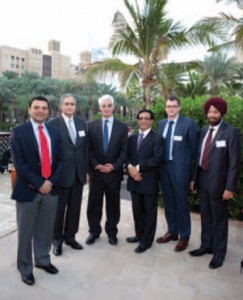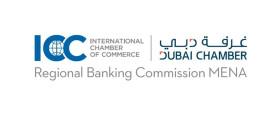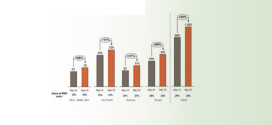 Leading names from the world of international finance were at the third annual Falcon Group trade and corporate finance forum held at the Madinat Jumeirah Hotel, Dubai. Moderated by BBC World’s Nima Abu Wardeh, the forum brought global CEOs and CFOs together to hear speakers discuss crucial issues for corporate funding.
Leading names from the world of international finance were at the third annual Falcon Group trade and corporate finance forum held at the Madinat Jumeirah Hotel, Dubai. Moderated by BBC World’s Nima Abu Wardeh, the forum brought global CEOs and CFOs together to hear speakers discuss crucial issues for corporate funding.
Offering political, economic, banking and corporate perspectives, the list of speakers included a former British Chanellor of the Exchequer, Alastair Darling; Abheek Barua, chief economist of India’s HDFC Bank; Michael Spiegel, head of trade finance and cash management for corporates for Deutsche Bank; and Mark Giles, board director of KSA’s Alhamrani Group.
Abheek Barua started the proceedings with a speech about current economic risks, highlighting concerns about “a hard economic landing in China, the euro zone crisis, persistently high energy prices, lower global growth and a reversal in the US trajectory of recovery”.
 Spiegel looked at a change in corporate attitudes, with the drive to maximise margins becoming secondary to ensuring business sustainability, including that of counterparties within the supply chain.
Spiegel looked at a change in corporate attitudes, with the drive to maximise margins becoming secondary to ensuring business sustainability, including that of counterparties within the supply chain.
Giles explored the value of alternative financing for corporates. He also described Alhamrani’s more diversified strategy and continuity with funding from alternative non-bank financiers such as the Falcon Group.
Keynote speaker Alastair Darling offered the political perspective. As the UK’s finance minister between 2007 and 2010, he gave a unique perspective on the banking crisis, describing some of the events that marked his extraordinary period in office.
A new element to this year’s forum was the inclusion of a panel debate to conclude proceedings, led by Nima Abu Wardeh, who presents BBC World’s business and finance programme for the Middle East. Kamel Alzarka, the chairman of Falcon Group, joined the speakers to highlight the key message of the forum – that uncertainty over bank security, increased bank regulation and a reduction in bank funding meant that alternative financing was becoming ever-more important to corporates.
“Despite many banks becoming increasingly restricted with respect to funding their corporate clients, this situation may prove a strong opportunity for both alternative financiers, and the corporates that, perhaps, had previously been over-reliant on bank funding,” he said.
 Cash And Trade Magazine For Cash and Trade professionals in the Middle East
Cash And Trade Magazine For Cash and Trade professionals in the Middle East




